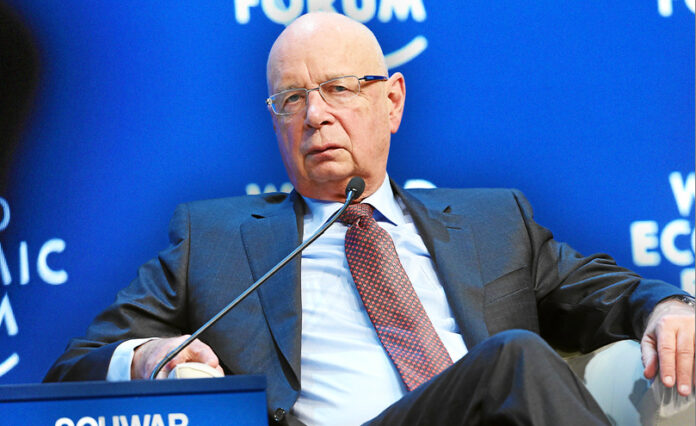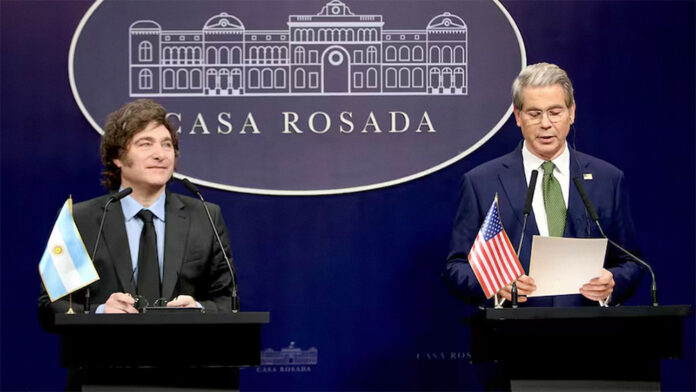By Seth Millstein for Sentient
Via California News Service
The largest pork producer in America is owned by a Chinese company, and a lot of people don’t like that. Critics of the corporate acquisition that took place in 2013 argued that Smithfield Foods’ Chinese ownership was a national security threat. Now, a political action committee is building on that sentiment — warning that Congress is being lobbied by Smithfield and other pork industry groups to slip language into the Farm Bill to gut the animal welfare protections of California’s Proposition 12. If successful, the PAC argues, this Smithfield-supported reversal of Prop 12 could multiply the threat to national security even more. But there are other major problems with the company that long predate any Chinese involvement.
“I hope that everyone will really wake up and realize what a tremendous threat it is right now in 2025 for us,” Marty Irby, the head of Competitive Markets Action, a political action committee devoted to defeating the EATS Act, tells Sentient. Proposed in 2023, the EATS Act contains language that pork industry trade groups are urging Congress to include in the Farm Bill. “It’s very serious, and it’s not something to take lightly,” says Irby, who has previously been a lobbyist for the Humane Society Legislative Fund.
But does Smithfield’s Chinese ownership really pose a threat to everyday Americans? Let’s jump in.
Smithfield’s Chinese ownership, explained
Founded in Virginia in 1936 as a meatpacking company, Smithfield Foods steadily grew over the decades to become one of the biggest meat producers in the country. But in 2013, WH Group, formerly known as Shuanghui International Holding Limited, one of China’s largest meat producers, purchased Smithfield outright for $4.7 billion.
It was the largest-ever Chinese acquisition of an American company, and was highly controversial in America. The central concern among critics has remained largely the same in the years since: that giving China control over such a huge chunk of America’s pork supply represented a threat to American food security.
But what exactly does it mean to say that “China owns Smithfield?” Does the Chinese government itself run the company, as many critics have alleged, or is it just private citizens and businesspeople?
The answer isn’t straightforward. On the one hand, WH Group is a private company that’s traded on the Hong Kong stock exchange. Smithfield CEO Larry Pope testified to Congress in 2013 that WH Group was not managed or run by the Chinese government, and Smithfield itself is still managed by American executives.
But according to a 2015 investigation by the Center for Investigative Reporting (CIR), WH Group does not operate independently from the Chinese government — at least, not entirely.
To begin with, the state-owned Bank of China facilitated the Smithfield purchase by giving WH Group a $4 billion loan. And although the company operates with a large degree of autonomy, it’s still required to adhere to the general goals outlined in the Chinese government’s five-year plan, and is expected to follow any directives it receives from the government to that effect.
To be sure, this isn’t specific to WH Group. The Chinese government is closely involved with all of its domestic industries, and regularly plays an active role in the running of private enterprises. The real question, at least insofar as Smithfield goes, is what this means for Americans — and Americans’ food supply.
Why do people object to Chinese ownership of Smithfield?
While Smithfield’s Chinese ownership has drawn controversy for a number of reasons, most criticism focuses on two topics: national security and American workers.
National Security
After purchasing Smithfield in 2013, WH Group owned one-in-four pigs raised in the U.S., according to a 2015 report. Many fear that giving a foreign company this much control over America’s food supply poses a national security risk, as it could imperil Americans’ access to domestically produced food.
“If we get into some sort of world disaster, or a situation where there’s [food] scarcity — it could even be another COVID-19 — where do you think China’s going to send their pork? They’re going to send it back to China,” Irby says. “I think that’s very detrimental to our own population, as far as having the affordable food that we need to put on the table out there in times of crisis.”
At least one agricultural economist disagrees, however. “Chinese ownership of agricultural land does not threaten our ability to produce food,” agricultural economist David Ortega wrote in an op-ed at The Hill in 2024. “Food insecurity arises in our country not because of production deficits, but because of issues of affordability and access facing consumers.”
The U.S. is the third-largest pork producer in the world, and already exports around one-third of the pork it produces domestically. In an emergency situation, the federal government could simply put a temporary ban on pork exports, which would immediately increase the domestic supply of pork for Americans.
American workers
Irby also argues that American farmers suffer due to Smithfield’s Chinese ownership, as the company’s profits no longer flow to Americans.
“We have American-owned companies and American producers that are out there that are struggling,” Irby says. “You’re seeing Smithfield and China now making the profits, and the American family farmer breaking even.”
There’s no question that small farms in America have been on the decline for some time now. The agricultural sector is highly concentrated, with the bulk of the profits going to a handful of large producers, and this trend has worsened over time.
Over the last 30 years, the farmer’s share of each retail dollar spent on their products has fallen by 20 percent, according to government data, and many operators of small- and medium-sized farms now earn less than $10,000 a year just from their operations — a figure that’s even lower when taking into account household expenses and debt obligations.
Family farmers have been feeling the economic squeeze for decades now, in other words, due to factors that long predate China’s purchase of Smithfield. The number of hog farms in the U.S. has been steadily declining since at least the 1990s, and so have hog farmers’ profits.
Smithfield Foods, Animal Welfare and Proposition 12
While it hasn’t drawn quite as much attention, China’s ownership of Smithfield Foods has also raised concern for the welfare of the animals under the company’s control.
Although America doesn’t have particularly strong animal protection laws, the parameters of meat production in the U.S. have been restrained, albeit to a small degree, by California’s Proposition 12, which banned the extreme confinement of certain livestock (including pigs) and, crucially, prohibits the in-state sale of meat products that were produced using extreme confinement measures, even if raised in other states or countries outside the U.S.
Because California is such an enormous market, that second part of the law has resulted in meat producers across the country (and beyond) modifying their production standards to give pigs and other animals more space.
China, on the other hand, doesn’t have any livestock protections at all. There’s no requirement that animals be stunned, anesthetized or rendered unconscious before they’re slaughtered, let alone given enough room to live comfortably. Pigs raised for meat in China are crammed into enormous high-rise buildings, sometimes referred to as “hog hotels,” in which tens of thousands of pigs languish at any given time.
“Those animals are in duress,” Irby says of the pigs raised in Chinese slaughterhouses and other facilities that aren’t Proposition 12-compliant. “We believe that farmers should be able to raise a pig in an open pasture, or at the very least, have enough room for the pig to stand up and turn around,” says Irby. The sentiment does not appear to be shared by industrial pork operations, either in the U.S. or China.
Although Smithfield Foods is owned by a Chinese company, it still has to comply with Proposition 12’s regulations, as the meat it produces is sold in California.
That’s where the language of the EATS Act comes into play. If passed or, more likely, if its language is included in the next Farm Bill, the move would overturn Proposition 12, as well as over 1,000 other state and local laws that regulate animal husbandry.
The real enemies: Pollution and price fixing
Although Smithfield’s Chinese ownership has stirred up a good amount of controversy, there are some other glaring problems with the company that have nothing to do with China, and which have received comparatively little press coverage.
Smithfield’s pollution
Hog farms are responsible for a range of environmental impacts. They pollute the water, release greenhouse gases and stink up the air.
Smithfield is no different, and has been especially prolific in this regard. In 2022, a report by the Socially Responsible Agriculture Project revealed that 21 of the company’s pig farms in Missouri had spilled over 7 million gallons of waste into surrounding communities over the preceding three decades. That same year, a Smithfield farm in the state was fined $18,000 for spilling 300,000 gallons of manure into nearby creeks.
The company has lost several multi-million dollar lawsuits relating to the degradation of air quality and living conditions in the communities around its farms. In 2018 and 2019, it was fined for water pollution violations at one of its South Dakota facilities, and according to estimates by the Institute for Agricultural and Trade Policy, the company emits around 30 million metric tons of CO2 every year.
Price-fixing
Smithfield Foods has also been accused of — and paid the price for — price-fixing on more than one occasion.
In 2023, the company agreed to pay $75 million in settlements after a group of purchasers accused it of artificially restricting its supply of pork in order to inflate prices. This was unrelated to the $42 million settlement the company paid the year before to restaurants and caterers, who also accused the company of price-fixing to boost its profits.
It’s worth noting that the purchasers in question accused Smithfield of engaging in this market manipulation since 2009 — long before China had anything to do with the company. The terms of the settlement did not require Smithfield to acknowledge any fault, however.
This intersects with the broader issue of monopolization in the meat industry, and the related issue of consolidation, in which large agricultural conglomerates like Smithfield either acquire smaller farms or put them out of business, resulting in less competition and more concentration of wealth and power in the hands of the largest agricultural companies.
“If they gain more market share, it’s just going to enable them to basically drive up the prices and demand what price they want,” Irby says. “We’ve seen it in so many other areas: The larger share of the market that a company owns, the more that they’re going to go in and drive up the price, because they can.”
The bottom line
As the largest-ever acquisition of an American business by a Chinese business, WH Group’s purchase of Smithfield Foods was undoubtedly a landmark moment in American business and agriculture.
The company’s foreign ownership has made it a lightning rod for criticism. Smithfield has been credibly accused of price-fixing on several occasions, and has paid millions and millions of dollars as a result. But most of the company’s practices are standard for an industrial meat conglomerate, regardless of whether it is owned by a Chinese firm or not.
 The Peralta Community College District (PCCD) is calling for sealed qualification /proposal packages from qualified firms to provide Professional Services Consulting Pool (RQF-P No. 24-25/17) for Measure G Bond Program Projects to be delivered electronically (via Planet Bids) District Current Solicitations | Planet Bids, by 2pm, May 23, 2025.
The Peralta Community College District (PCCD) is calling for sealed qualification /proposal packages from qualified firms to provide Professional Services Consulting Pool (RQF-P No. 24-25/17) for Measure G Bond Program Projects to be delivered electronically (via Planet Bids) District Current Solicitations | Planet Bids, by 2pm, May 23, 2025.










